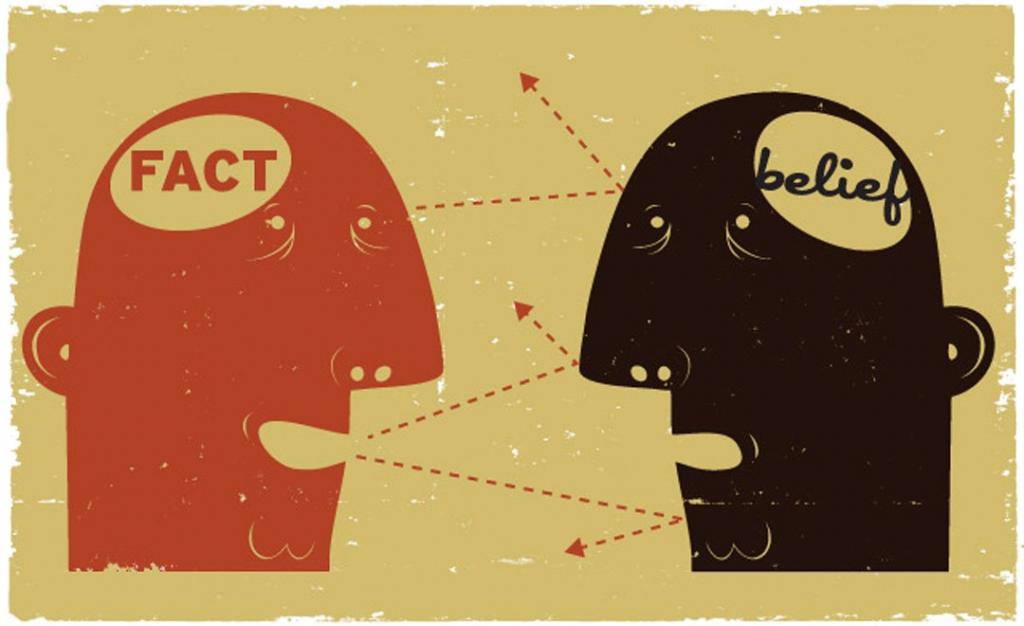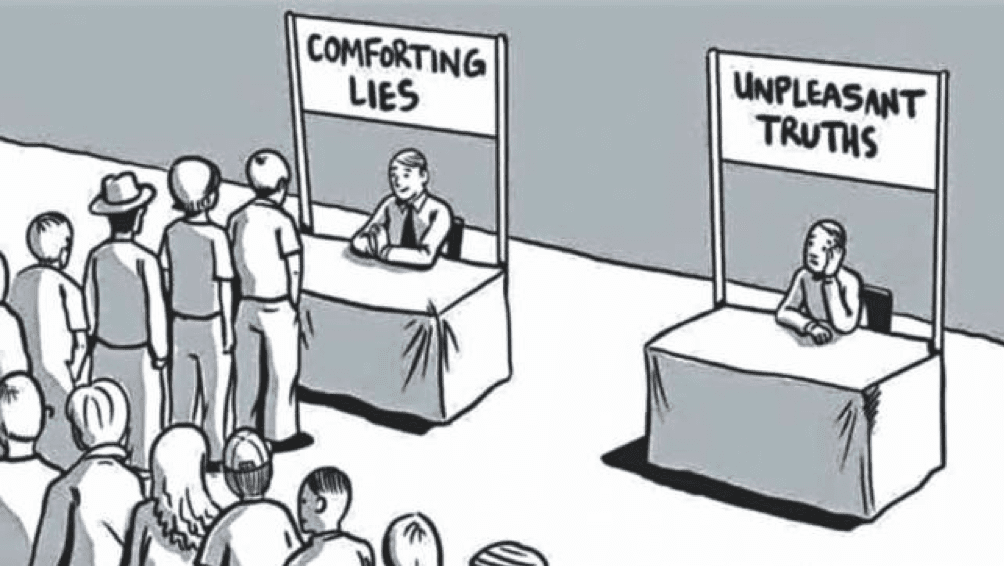
Why do people say ignorance is bliss? The simple answer is because sometimes it’s better for a person not to know the truth than to know it. I don’t have an issue with people who are truly ignorant of something. My problem is with people who are intentionally ignorant to get out of knowing something that could cause them to grow or change some previously held belief.
This is not meant to be an insult, but a matter of fact: many conservative evangelicals suffer from willful ignorance. I have had many conversations with many conservative evangelicals about a variety of topics over the years. In nearly every case, when I am face to face with one and I explain the logic behind why progressives think the way they do about a particular belief, the evangelical capitulates.
Now it could be that I am just the world’s greatest progressive apologist. That could explain why this happens. Or, and more likely, I have disrupted the individual’s ability to remain ignorant by presenting them with a coherent argument.
I think the key here is “in person”. For some reason presenting a logical argument in person is much more persuasive than in writing. Perhaps it is because we cannot control how much the individual actually reads, but we can control the amount of information we present them in person. In-person also provides a relational component that is missing in writing. Also, I think in-person conversations allow for an interlocution that is not present in writing. This allows for a give and take that is not present with the writing medium.
However, there are still some who, for whatever reason, will remain stubborn when confronted with a truth that is clear, logical, and rational. Ultimately, the stubbornness many of us see in conservative evangelical circles is a result of something called cognitive dissonance.
Cognitive Dissonance
When an individual (or a group) commits to remain ignorant about facts that are self-evident to others, they are said to have cognitive dissonance. Cognitive dissonance can affect a wide range of beliefs. It’s the inability (or even a lack of desire) to harmonize personal beliefs with some other axiom. This lack of desire is oftentimes a result of fear. Coming to grips with the demise of one’s belief creates disorientation that is difficult for the individual to deal with.
The cognitive dissonance of conservative evangelicals toward their belief about their place in culture is widely known and accepted by most – except conservative evangelicals of course. But, what is the cure for this intellectual disease? Is there a way to snap someone out of their cognitive dissonance? According to psychology, the answer is yes.
According to SimplyPsychology.org, there are three ways to reduce cognitive dissonance. I will discuss these three views below:
Changing Existing Beliefs
This one goes without saying. Of course, changing one’s belief about something will alter their cognitive dissonance. However, it has to be the right belief. It has to be in the right context. It has to be the right time.
Perhaps the aforementioned example of speaking with people in person regarding a particular belief is an example of this phenomenon. It will always be the case that having a relationship with an individual you are speaking with will always be the best context for helping to challenge that person with a new way of thinking.
Changing existing beliefs is very similar to the next one, but different in a few ways.
Adding New Beliefs
This is about providing new information that an individual did not previously have. So, instead of arguing about an individual’s perceived ignorance, one presents the other with incontrovertible information to the contrary. We see a lot of people who are deconstructing their faith as a product of this type of reasoning.
Unfortunately, this requires that the individual is a critical thinker. Many people are suspicious of new information – no matter how reasonable it sounds. In fact, they are often taught that the more reasonable argument is cleverly disguised as false teaching. This is often based on passages like 1 Timothy 4:3-4 and others like it.
“For the time will come when people will not put up with sound doctrine. Instead, to suit their own desires, they will gather around them a great number of teachers to say what their itching ears want to hear. They will turn their ears away from the truth and turn aside to myths.”
Presenting someone with a new way of thinking about an idea is often as much about how you say something as it is what you say. It is important to resist emotional arguing and the “me against you” mentality. For example, instead of beginning with the premise that the other person’s belief is incorrect, and then arguing from that perspective. You should first assert a positive feeling toward their belief, “Okay, I see what you’re saying“, followed by your belief. From there you can say why you don’t think that their belief is rational “I used to believe that, but this is why I don’t anymore”. This is both disarming and non-combative. What you don’t want to do is have a conversation full of emotion and combativeness, that will do nothing but make the cognitive dissonance worse. The more experiences the evangelical has that are emotional and combative, the more they will distrust those who disagree with them. As progressives, we should understand this better than anyone else since many of us have experienced these types of conversations with evangelicals.
Reducing the Importance of Beliefs
Good luck with this one. Since much of what conservative evangelicals believe is rooted in their belief in God (actually their strong belief in the inerrancy of scripture), then getting them to reduce the importance of that belief is nearly impossible.
However, I have found the best way to challenge a conservative evangelical about inerrancy is to show them how much more they view scripture over and above Jesus himself. I try to avoid using words like “idolatry” because these are loaded with emotion. Separating Jesus from scripture is difficult for many conservative evangelicals because all they know about Jesus comes from scripture which results in a conflation of the two. Moreover, reducing the importance of inerrancy (specifically) creates a watershed moment whereby deconstruction is not far behind.
With that said, in my experience, those who go through deconstruction will find themselves reducing their cognitive dissonance once their theology in the inerrancy of scripture begins to change. The reason for this is because inerrancy is the core of how all other beliefs are constructed for the evangelical.
But of course, this requires that an individual is already in a state of doubt or questioning and not fully immersed in the world of conservative evangelicalism. Nevertheless, it does prove the theory that reducing the importance of beliefs is useful for reducing the amount of cognitive dissonance that the individual experiences.
This also demonstrates the importance of deconstruction within the evangelical worldview. Until the individual has come to a place where they care more about what is true instead of what their group tells them to believe they will remain in a state of cognitive dissonance.
Concluding Thought
I have found that attempting to cure cognitive dissonance within evangelicalism is like the new evangelism. Converting people to critical thinking along the way we must stay humble about cognitive dissonance because it could very well be the case that we are the ones who suffer from it. Staying humble, staying informed, and refusing to adhere to progressive fundamentalism will help the progressive Christian to achieve this goal.
You can view my UNenlightenment YouTube Channel HERE
You can view my UNenlightenment Podcast HERE
You can follow me on FaceBook HERE


















